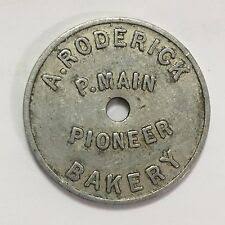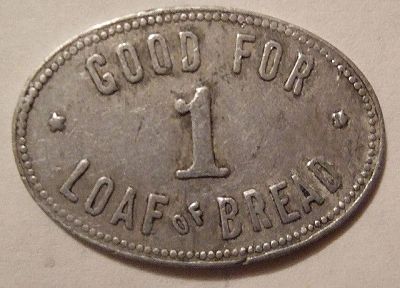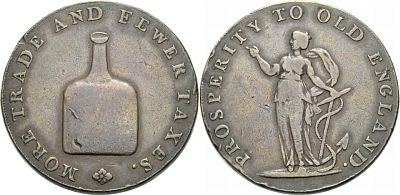
 On two occasions in Britain, the lack of small change and the failure of the government to deal with the situation, led to the private issue of tokens, which were used widely, although they were an illegal form of coinage. The issues were made during the second half of the 1600s, the late 1700s and the early 1800s.
On two occasions in Britain, the lack of small change and the failure of the government to deal with the situation, led to the private issue of tokens, which were used widely, although they were an illegal form of coinage. The issues were made during the second half of the 1600s, the late 1700s and the early 1800s.The tokens did not bear the Sovereign’s head but carried the name of the tradesman issuing the token, the value it represented and usually a symbol or sign of the trade pursued. Not only were tradesmen involved, but inn-keepers and some town mayors used them too. These tokens were a vital part of local trade, particularly among the poor in meeting their day-to-day needs. These are always well collected but are by no means in short supply and excellent collections can be formed to illuminate local history.

